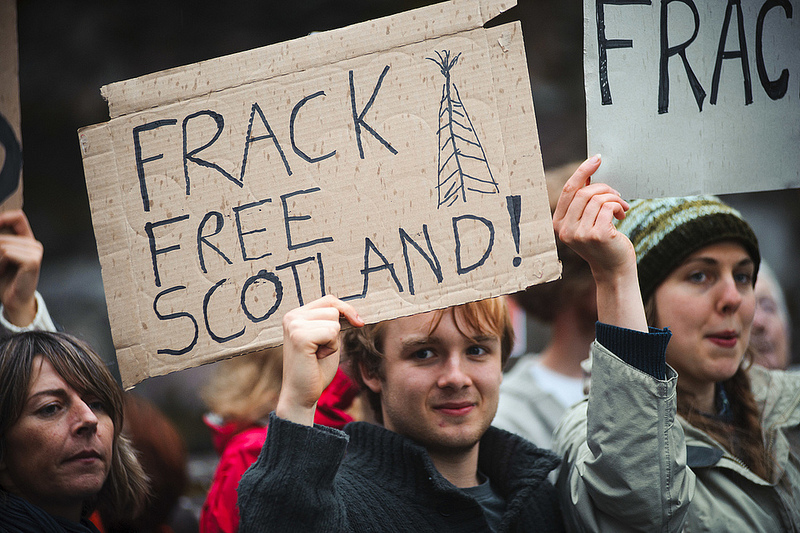
Scotland can ban fracking: Here’s how
Mary Church, Head of Campaigns at Friends of the Earth Scotland, explains how Scotland can ban fracking.
The Scottish Government has just launched a consultation seeking the views of people around the country about whether or not fracking should be allowed to go ahead.
Two years ago, responding to enormous public pressure, the government called a halt to fracking. Now we are reaching the final stages of a long process to determine the future of the fracking industry in Scotland.
The case against fracking was strong two years ago, and it is even stronger today. Evidence about harm to human health, climate impacts and environmental damage has grown steadily, as more and more research emerges from the US where the industry has been underway for some years.
Key findings from the Scottish Government’s own research support the case we have made against unconventional oil and gas extraction over the last 6 years:
- going after fracked gas will make it much harder to meet our legally binding climate targets
- fracking operations pose serious risks to our environment and the health of communities and workers
- there will be no big economic benefits from going after fracked gas in Scotland
The evidence speaks for itself: fracking must not be allowed to go ahead in Scotland.
It’s also clear that the Scottish Government can act to ban unconventional oil and gas, and is unlikely to face a serious legal challenge in doing so. Planning and environmental powers have long been used to put into effect a ‘policy ban’ on new nuclear plants, and in October last year Energy Minister Paul Wheelhouse announced a ban on highly experimental underground coal gasification technology using these same powers. No challenge has been made to either ban.
With shale gas fracking and coalbed methane drilling the Scottish Government has the power to go further by passing a law in Parliament to ban these activities. Following the Independence Referendum, as a result of the huge opposition to fracking in Scotland and the markedly different approach of the Scottish Government to that of Westminster, powers over onshore oil and gas were devolved to Holyrood.
A legislative ban is the strongest and surest way to make sure fracking is stopped for good. But it will only happen if tens of thousands of people tell the Scottish Government that it’s the right thing to do.
On the issue of fracking, the government listened to directly affected communities and a groundswell of opposition across the country and acted to halt the industry in its tracks. With underground coal gasification, an industry threatening many of the same communities facing fracking, once again, the government was responding to huge resistance in acting to ban it.
Now we need to work together make sure that people the length and breadth of Scotland understand the risks involved with fracking, and get their voices heard in this consultation process. People power has got us this far in the fight against fracking: together we can ban fracking for good.
Take action now to say no to fracking: https://act.stopfracking.scot/ban
Anyone can get involved in the fight against fracking! We’re providing resources to help people get active during the consultation so if you have an idea for an event or action please visit this page and get in touch
